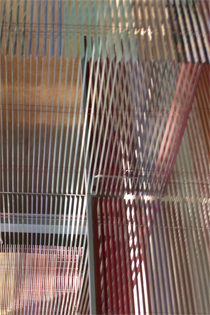Jacques Hamel | 21.01.2013
This article considers the core aspects of interdisciplinarity. After examining briefly what this commonly-used notion implies, we aim to show that interdisciplinarity, while possibly tempering specialization within the fields of science and social sciences, is not an all-new concept, and proves to be a difficult task, as Durkheim and Simmel have shown in their day in sociology. Indeed, interdisciplinarity does not conceive science as a knowledge by object and by concept, which implies a reduction of what it seeks [...]
Choix industriels et interdépendances économiques. Le cas du Boeing 787 et de l’économie française.
Jean-Paul Maréchal | 25.09.2012
L’objet de cet article est de montrer, à partir de l’exemple du Boeing787, la complexité des questions liées à la mondialisation, en particulier la nature des interdépendances économiques qui résultent des choix opérés en matière de configuration de la chaine de production. [...]
Traduction de « Towards a geography of heterogeneous associations » de Jonathan Murdoch.
Traduction de Claire Tollis | 11.06.2012
Dualisms have been a recurring feature of sociospatial analysis. Micro/macro, local/global, subject/object, particular/universal. One or more of these dualistic frameworks can be discerned in many geographical texts. Dissolving the dualisms, somehow finding a way through the gaps which open up between them, requires the development of an approach which allows the various scales of social life to be treated symmetrically so that we never have to shift to a different register when studying large-scale or ‘big’ (usually termed structural) [...]
Réponse au « Passant inconsidéré ».
Stéphanie Tawa Lama-Rewal | 20.02.2012
Le texte de Jacques Lévy propose une réflexion très large sur l’espace public urbain en Asie du Sud et ce qu’il révèle des sociétés et des États de cette région du monde. Le point de départ en est une expérience, largement partagée, et communément déplorée (« Dead Man Walking », 2009), de la « brutalité [...]
Jacques Lévy | 20.02.2012
La réaction de Stéphanie Tawa Lama-Rewal (contracté en STL-R dans la suite du texte) m’a intéressé mais m’a laissé perplexe sur les motivations et les ressorts de sa posture. Le quiproquo comme rhétorique. Essayons d’abord de lever quelques malentendus troublants. Une bonne partie de l’argumentaire de STL-R consiste à indiquer qu’il y a eu des [...]
Dvora Yanow | 12.09.2011
Attention to metaphors and their analysis have in recent years increasingly come out of the realm of poetry into the realm of social and other sciences. This book review, along with the book itself, could well be read in this context. There are two distinct approaches to such an analysis. One concerns the use of [...]
Peter Sloterdijk | 16.05.2011
Meine Damen und Herren, liebe Freunde, Es ist für mich eine große Ehre, um vom großen Vergnügen nicht zu reden, an diesem Abend in Lausann den Charles Veillon-Preis entgegennehmen zu dürfen, den mir die Jury mit einer hochwillkommenen Geste der Großzügigkeit zuerkannt hat. Es ist bei Anlässen wie diesen guter Brauch, daß der auf solche [...]
Peter Sloterdijk | 16.05.2011
Mesdames et Messieurs, chers amis, C’est pour moi un grand honneur, pour ne pas dire un grand plaisir, de recevoir ce soir à Lausanne le prix Charles Veillon que le jury m’a attribué dans un geste de générosité fort bienvenu. En des occasions comme celle-ci, il est d’usage que l’auteur ainsi honoré et heureux se [...]
A Letter Addressed to the EspacesTemps.net Committee.
Matthew G. Hannah | 31.01.2011
Dear Editorial Board, I am glad to see you are considering this issue. It is crucial to the future of academic research. I include below a few basic thoughts about it. To set a context for these thoughts, I should mention that I am currently working on a larger research project with a colleague, Prof. [...]
Notes from the Stockholm Anthropology Roundtable, October 3-5, 2008.
Johan Lindquist | 31.01.2011
As the theme of this traverse clearly states, during the last decade, in the wake of books such as Bill Reading’s The University in Ruins (1997), there has been an increasing academic concern with Audit Cultures (Marilyn Strathern, 2000) or Audit Society (Michael Power, 1997). Particularly within the European University system, a form of critique [...]

